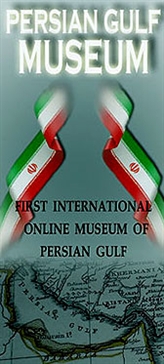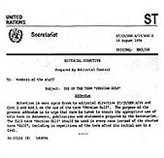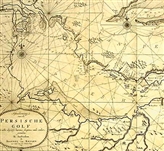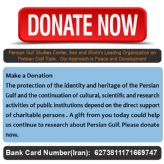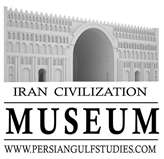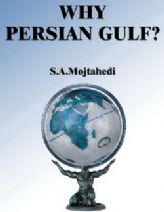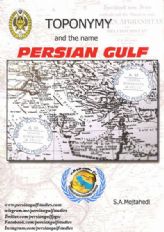The Saudi Regime’s Other Victims
Date: 6/15/2019 1:17:26 PM
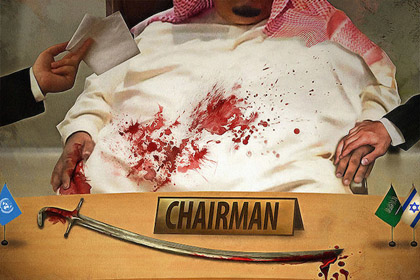
The Saudi Regime’s Other Victims
The murder of Jamal Khashoggi has focused attention on Saudi Arabia’s human rights abuses. We need to remember all of the thousands in prison.
By Katherine Zoepf
Ms. Zoepf is a journalist who writes about the Middle East
Saudi Arabia’s Crown Prince Mohammed bin Salman waits for the family photo during the G20 summit in Buenos Aires, Argentina, last month.CreditAndres Martinez Casares/Reuters
Image
Saudi Arabia’s Crown Prince Mohammed bin Salman waits for the family photo during the G20 summit in Buenos Aires, Argentina, last month.CreditCreditAndres Martinez Casares/Reuters
In November 2015, I spent a couple of weeks reporting in Jeddah, Saudi Arabia. It had been less than two years since my last visit to the country and just 10 months since King Salman’s ascension to the throne, but the mood among local activists and intellectuals had darkened considerably. On my final evening, my friend Fahad al-Fahad, a marketing consultant and human rights activist, offered to take me on a tour that, he suggested, might help to explain the new atmosphere.
We drove to the Jaffali mosque, where, just outside, public beheadings are carried out, and where, earlier that year, Raif Badawi, another Saudi activist, had been flogged before hundreds of onlookers. Then we drove through the desert toward the village of Dhahban, where the Interior Ministry was building a massive new prison complex, which Fahad said was to help house the burgeoning population of Saudis convicted under the country’s broad counterterrorism laws. Under King Salman, Fahad explained, these laws were increasingly being used to lock up peaceful dissidents.
“Every time my doorbell rings, I think someone has come to arrest me,” Fahad said.
Dhahban Central Prison opened a few weeks after our visit, and many of the kingdom’s highest-profile detainees — including Mr. Badawi and his former lawyer, Waleed Abu al-Khair — were transferred there. Four months later, the arrest Fahad had been dreading finally came, and he was jailed at Dhahban, too. He is now serving a five-year prison term for “inciting hostility against the state” via tweets. His sentence includes a 10-year travel ban, which will begin following his release, as well as a lifelong writing ban.
The killing of Jamal Khashoggi at the Saudi Consulate in Istanbul on Oct. 2 has led to intensifying international scrutiny of Saudi Arabia’s powerful crown prince and day-to-day ruler, Mohammed bin Salman, and of his actions abroad. Though President Trump has stood by the crown prince, the Senate voted in November to advance a bill that would end American support for his military campaign in Yemen. Last week, Senate leaders demanded a briefing from the C.I.A. director, Gina Haspel, on the evidence surrounding Mr. Khashoggi’s murder; after meeting with Ms. Haspel, senior senators told reporters they were convinced that Prince Mohammed had ordered the killing.
But despite continuing anger over Mr. Khashoggi’s fate, too little attention is being paid to the crown prince’s treatment of dissidents inside the kingdom, who often lack the resources to consider lives in exile, and who are now being imprisoned in record numbers. More than 2,600 Saudi dissidents, including prominent scientists, writers, lawyers and women’s rights campaigners, are in detention in Saudi Arabia, according to Prisoners of Conscience, a Saudi group that tracks political prisoners. Most were convicted under the kingdom’s counterterrorism laws, receiving sentences for such nonviolent offenses as “criticizing the royal court” and “ridiculing religious figures.” Few of these people are as well known in Western capitals as Mr. Khashoggi was, but their stories are no less important.
Saudi Arabia was not always like this. Viewed from afar, Saudi kings may look like one long, undifferentiated line of autocrats. But the degree to which dissent is tolerated has fluctuated over time, depending on the temperament of the ruler and the pressures he faces.
Though King Salman’s predecessor, King Abdullah, was often castigated by Western human rights groups, Saudi conservatives attacked him for encouraging public discussion of reform. In 2003, while he was still crown prince, Abdullah initiated a series of meetings that brought together representatives from diverse sectors of Saudi society to examine potential solutions to the kingdom’s problems. After becoming king in 2005, he gave hundreds of thousands of young Saudis scholarships to European and North American universities. By 2010, Saudis were among the world’s most avid users of social media, taking to Twitter and Facebook to campaign for greater rights and freedoms, particularly for women.
But the spectacle of Arab leaders succumbing to the Arab Spring uprisings alarmed the elderly king and his advisers, leading them to wonder if they’d gone too far. The Saudi government tried to buy off the opposition, spending billions on public housing and higher salaries. It also imprisoned some of the most outspoken activists, including Mohammed Fahad al-Qahtani, Abdullah al-Hamid, and Mohammed Saleh al-Bejadi, founding members of the Saudi Civil and Political Rights Association who had steadfastly refused to be co-opted.
After King Salman took the throne in January 2015, the pace of arrests accelerated. Executions spiked, reaching levels unseen for two decades. Alongside this crackdown came a deliberate shift in narrative, led by Prince Mohammed, who, within months of his father’s coronation, had been put in charge of oil, economic policy and the armed forces. Public discussion of social reform was sharply reduced. The national conversation about progress was now limited to technology and entrepreneurship. This new emphasis struck many Saudi intellectuals as cynical, calculated to impress Western visitors, who came away from meetings with the crown prince gushing praise.
After the crown prince’s Vision 2030 plan to diversify the Saudi economy was announced in April 2016, pressure to toe the official line laid out in the vision became more aggressive. Crackdowns on activists grew even more severe. And it wasn’t just the Saudis who disagreed with Prince Mohammed who found themselves detained: The prince was leading an “anti-corruption” drive, but simultaneously overseeing the imprisonment of writers like Fahad, who had criticized official graft. At the same time that the government permitted women to drive, female right-to-drive activists, such as Loujain al-Hathloul and Eman al-Nafjan, were imprisoned. Last month, Amnesty International reported that some have been tortured.
In the 18 months since Prince Mohammed became heir apparent, the message to those inside the kingdom has become clear: The prince’s need to control the narrative is so great that he will brutally suppress not only dissidents but also those who agree with him — should they dare to express their views in public. The intended message to outsiders is clear, too: Prince Mohammed is Saudi Arabia’s only hope and savior, a visionary bent on dragging his resistant subjects into the future.
That narrative is now fraying. The killing of Mr. Khashoggi, a relatively mild critic of the kingdom, has exposed Prince Mohammed and the Saudi government’s intolerance of any kind of dissent. But the thousands of political prisoners should be part of the conversation, too, even if they didn’t write columns for major Western newspapers or were never popular dinner-party guests in Washington and London.
Saudi Arabia’s allies — in particular the United States and especially Congress, since the Trump administration seems intent on giving Prince Mohammed a pass — must insist on the release of the kingdom’s political prisoners. The Khashoggi scandal has wrong-footed the Saudi leadership, significantly increasing the likelihood that such a demand will be acted upon. Western leaders who wish to avenge the murder should demand freedom for Mr. Khashoggi’s fellow dissidents.
Prince Mohammed may not realize it, but his obsession with maintaining his image as the sole voice of Saudi progress is hobbling his own reform efforts. By releasing political prisoners and loosening restrictions on free expression, the crown prince would not only earn a great deal of good will and silence some of the calls to punish the kingdom, but he also would restore an organic, homegrown check on his power, thereby increasing his chances of achieving the social and economic reforms he claims to aspire to. My friend Fahad and his fellow dissidents are, like Mr. Khashoggi, Saudi patriots who want nothing more than to devote their energies and talents to their country’s advancement.
